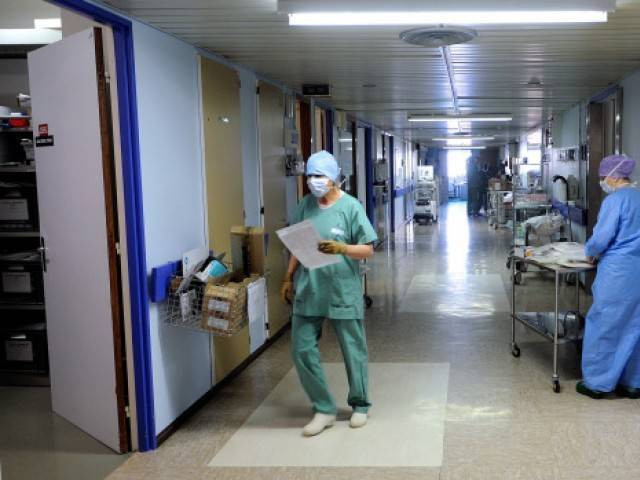Man dies after being left brain-dead in French drug trial
The CEO of the company that was developing the drug said he was "profoundly shocked" by the death

The CEO of the company that was developing the drug said he was "profoundly shocked" by the death. PHOTO: AFP
The CEO of the Portuguese pharmaceutical company that was developing the drug said he was "profoundly shocked" by the death and pledged an investigation.
Five other volunteers hospitalised a week ago when the drugs trial went wrong were "in a stable condition", the hospital in the western city of Rennes said in a statement.
Drug-trial in France leaves one brain-dead, five hospitalised
The France-based private laboratory Biotrial was testing a new pain and mood disorder medication for Bial on humans for the first time, in what is known as a Phase I trial, to test the drug's safety.
A total of 108 volunteers took part in the trial, 90 of whom received the drug at varying doses while the rest were given placebos.
The six men who were hospitalised, aged 28 to 49, were the group which received the highest dose.
Bial CEO Antonio Portela said he was "profoundly shocked by the situation," according to Portuguese news service LUSA.
"On my behalf and the behalf of Bial, I would like to express my deepest apologies to the family of the volunteer who died after participating in the Phase I trial of our experimental molecule," he added.
Portela said Bial staff in France and Portugal were "working tirelessly to understand the causes of this accident".
Pierre-Gilles Edan, head of the neurology department at the Rennes hospital said Friday that three of the men were suffering a "handicap that could be irreversible" and another also had neurological problems.
The sixth volunteer had no symptoms but was being monitored.
"The 84 other volunteers exposed to the drug" have been contacted, said the hospital. Ten of them came in to be examined and did not have the "anomalies" seen in the hospitalised patients.
The incident is the worst of its kind ever to have taken place in France, which has launched three separate probes to determine whether the tragedy was caused by an error in the trial's procedures or in the substance tested.
Bial is cooperating with the investigation and vows it followed "international best practice" in developing the drug.
Biotral said in a statement Sunday that it planned to work with the international scientific community to develop "changes to the standards governing such trials", without giving further details.
The company, which has been carrying out drug trials on behalf of pharmaceutical companies since 1989, said the situation is "even more upsetting given that there is as yet no explanation".
Previous testing, notably on animals, had not thrown up any unusual results.
Such serious mishaps are rare during the development of a drug, which begins in the laboratory before being animal tested and then three phases of human trials before it can be brought to market.
France's public body ONIAM, which is responsible for compensating the victims of medical accidents, said it had in its files only around 10 cases of accidents during drugs trials over the past 15 years, and "with consequences infinitely less serious" than the case in Rennes.
Although a rarity, there have been precedents in other countries.
Six people seriously ill after medical trials go wrong in France
A comparable accident took place in 2006 in London when six people taking German drug manufacturer TeGenero's TGN1412, which it was developing to treat certain types of cancer and other immunological diseases, fell seriously ill, with one suffering from multiple organ failure.
Two of the volunteers were in a critical condition and one lost all his fingers and toes. The victims said they had the impression that their brains were on fire and that their eyes were coming out of their sockets.
Although they all survived, experts said at the time that their immune systems would be damaged for life.



















COMMENTS
Comments are moderated and generally will be posted if they are on-topic and not abusive.
For more information, please see our Comments FAQ